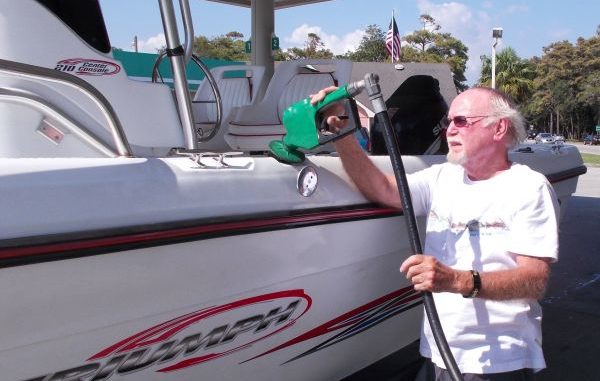
Bipartisan legislation would cap ethanol requirements at E-10
A bipartisan coalition of members of the U.S. House of Representatives introduced legislation on Feb. 4 to overhaul the current Renewable Fuel Standard regulations and its outdated ethanol mandates.
Rep. Bob Goodlatte (R-Va.) and 40 co-sponsors introduced the Renewable Fuel Standard Reform Act of 2015, which includes provisions to recognize that fuel usage has changed since the original legislation was passed in 2005 and the provisions in the bill, especially those requiring higher concentrations of ethanol, are outdated.
“The new bill would recognize the failure of the current RFS and its out-of-date increasing ethanol mandate, and make the necessary changes so there is safe fuel for all gasoline-powered engines,” said Nicole Palya Wood, a spokesperson for BoatUS. “BoatUS supports this bill because the RFS Reform Act acknowledges the reality of America’s declining fuel consumption, allows for the investment in other more compatible biofuels, and erases the twisted math that forces more ethanol onto a marketplace that neither demands it, nor can physically absorb it at safe levels.”
When the original legislation was adopted, the nation’s economy was thriving, and the assumption was that gasoline use would continue to rise. The 2005 standards mandated increasing amounts of biofuels be blended with existing fuels, however, the economy declined and so did gasoline usage. The legislation, thought to be responsible at the time, has forced more ethanol into the national gasoline supply and has had negative consequences.
No marine engines in the United States are warrantied to run on a gasoline blend higher than E-10. It is illegal to use E-15 in boat engines, snowmobiles, motorcycles, and small engines such as lawnmowers and leaf blowers, as well as any vehicle made before 2001. Many manufacturers include language in their warranties stating using fuel with more than 10-percent ethanol will void the warranties.
It has been reported that fuel using the E-15 blend can be found in gas stations in 16 states at the same pumps as E-10 and ethanol-free gasoline.
“I hope this legislation passes and they stop the distribution of E-15 gas,” said Mike Beard of Blackbeard Marine in Oak Island, N.C. “More than half of the fuel-related issues we have seen in the past few years were caused by E-10 gas, and this will be worse. There is not an outboard on the market that is certified for E-15 gas, and using it can void the warranty. If the manufacturers are that concerned with it, I’m really worried, too. E-10 causes enough problems, and we really don’t want to find out what adding more ethanol will do.”
Goodlatte’s legislation would cap the ethanol requirements at E-10 and effectively prohibit the use of corn-based ethanol in the RFS, require more-advanced biofuels and take into account actual, real-world production of biofuels when setting requirements.
Original co-sponsors of the bill were Rep. Steve Womack (R-Ark.), Rep. Peter Welch (D-Vt.), Rep. Jim Costa (D-Calif.).
Welch called the original renewable fuel legislation “a well-intentioned flop” in a statement announcing the bill.
The issue has garnered bipartisan attention in the U.S. Senate, where Sen. Dianne Feinstein (D-Calif.) and Sen. Patrick Toomey (R-Pa.), have introduced a similar proposal to repeal the corn-ethanol mandate that has never made it to a vote but could with the change in leadership in the Senate.
BoatUS has established a section on its website where concerned boaters and others concerned about E-15 gas can go to ask their congressman to support and co-sponsor the bill.
The National Marine Manufacturers Association has also launched a campaign to rally support for the bill.


